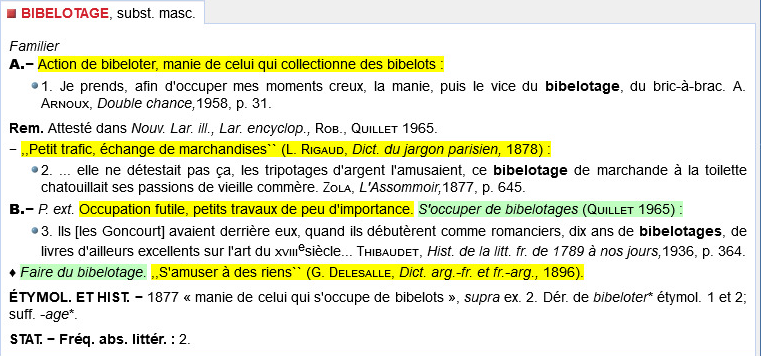
Logo design: Leigh Kotsilidis 🔗 (link opens in new window)
About Bibelotages
It's already dead.
The whole reason I am evening even poising to start a newsletter is because I remember the feeling of having no recourse for finding new content on the web that wasn't in vapid lowest common denominator clickbait form on algorithm-curated free-because-you-are-the-product homepages like Reddit or Youtube, of feeling disenfranchised with paper and digital subscriptions to newspapers, domestic and international, magazines, too, and even tired of my usual rotation of free websites like news aggregator spidr.today and the bastion of DIY investigative journalism Bellingcat (I can, at times, be a bit of a world news bingehound).
And circa 2022, newsletters like what happened last week? by the indefatigable journalist Sham Jeff covering the global south and the inaugural Semafor, had me joyfully thumbing through my email inbox on the toilet more than other doomscroll-prone apps like Instagram or TikTok.
I've also gotten really into Google Alerts and have even set up a separate Gmail inbox with daily alerts for every country in the world, as a way to curate my own self-updating archive of world news; I thought this would eventually become my new writing outlet for the year 2024 and, thinking of Poeta en Nueva York, I nicknamed this nebulous work-in-progress Lorca.
First everybody was starting a podcast (and still are), then it was... I don't know, literary Twitter got really into Substack for a hot minute at some point pre-enmuskification, now everyone seems to have a newsletter.
I'm out of touch, out of breath, out of shape and late to the marathon.
And with a belated impulse of fomo, now here I am, too, pretending it isn't already dead, when I'm playing Nietzsche's advocate and contradicting myself by saying from the jump that newsletters are dead. But that's OK. So are blogs. And my newsletter is also a blog.
All I mean is that the innovations are now riding all on the written content and not on the medium by which the content is communicated. The medium is the message (or the massage) and the message is passé, which in this context is just another way of saying mainstream, conventional, accessible.
So what? I'm a sellout, sue me.
Instead of don't flip the station, don't touch that dial, we'll be right back after these messages, it's please like and subscribe and now a word from our sponsors.
Newsletters eschew the marketing funnel cookies pop-up status quo by saying for five bucks a month, you can get the premium-tier version of this email (although the Unsubscribe button might be tucked away, buried or effectively hidden, and the link itself will likely hit a snag with Peter Lowe's Ad and tracking server list filter for uBlock Origin enjoyers).
That's right, the internetizenry has come full circle: we're paying for email again (re: bad joke for fellow olds 😎).
I acknowledge the present is plural: of course newsletters aren't the only game in town just because I like them; podcasts, subscription-model blogging, including things like Patreon, Substack and Medium, comments sections on various platforms, the fediverse, livestreams, live chat sections on streamers' livestreams, the list goes on.
A lot of people, especially in Canada, reluctantly or passively rely on social media to get access to up-to-date information surrounding current events. For all personal intents and purposes, it's news to them.
And not everyone is shelling out for a digital paper.
Even the people committed to ideals of the freely accessible web relying on proxies like 12ft.io to bypass popular newspapers' paywalls can't always get the articles they want (certain papers like WaPo and Globe and Mail prevent this workaround).
I don't even entirely disagree with Edwy Plenel, co-founder of French independent publisher Mediapart, when he basically said (paraphrasing, in a Kids in the Hall-style French accent) "it's not a paywall, it's just sparkling beneficence."
Well, in spite of all this, and in spite of my grandiose ambitions, I didn't think I could do what global affairs journos do.
But writing about contemporary literature is a type of journalism, if not at least something that is increasingly absent from print publications and front page news. And it's something I did for five years in the early 2010s.
And that's how my Project Lorca went from being a planned subversive DIY global journalism aggregate one-man-show newsletter project to becoming more about how I could best leverage my knowledge, experience and cred to deliver quality content to people who have enjoyed litfic since before it was lit.
And not to be all David Duchovny about it, but... the news is out there.
I wanted it to be, anyways.
A guiding principle behind the name was to get something that imitated the rigorous simplicity and unassuming character of one of my favourite collections of critical commentary, Roberto Bolaño's Entre paréntesis.
Well, in my research on the origins of the newsletter in history, I had recently encountered The Dictionary of the Vulgar Tongue: A Dictionary of Buckish Slang, University Wit, and Pickpocket Eloquence, discovering that newsletters had originated in the coffeehouses of royal England.
Yet another rabbit hole later, I simplified my search and checked to see if newsletterist.com was a domain name available to purchase.
It was not.
The top search engine result for newsletterist was newsletter.ist, an app for reading newsletters.
It was too generic, anyways.
I consulted James Joyce's Finnegans Wake at random, it having been the source of the title for my former book blog, Literatured.com, 2011-2015.
It gave me the phrase postequities, which Google mistook for posterity, coincidentally enough. It occurs in the singular form in this man's blog, Clive Bibby, whose last name perhaps subliminally pre-empted my following my gut on this.
As the longtime owner of The Large-type Concise English Dictionary by Charles Annandale, one of the best dictionaries of the English language you could quite possibly ever come into possession of in your life, I of course consulted its pages for inspiration when coming up with the name for this website.
Nothing.
After nearly 2 hours of word-storming, I recalled a strange word mentioned in Jacob Edmond's treatment of Dmitri Prigov in his book A Common Strangeness (2012), but couldn't quite remember what it was; so I looked it up:
Prigov came to be seen as a conceptualist in the early 1980s. The term was adopted by critics, writers, and artists of his milieu in a strategic appropriation from Western art. The appropriation built on Vitaly Komar and Aleksandr Melamid’s coinage in 1972 of sots-art—a linguistic and cultural adaptation of the term “pop art” that implied that Americans replaced “things” or “objects” whereas Russians replaced “concepts and ideologies.”
I then looked up sots on a reverse dictionary online I had been testing out for creative uses on a pop art-adjacent manuscript I've been working on in earnest since June of 2023.
Sots gave me bibber, as in, to imbibe, surviving in the English phrase winebibber, although bibber itself only survives in the Dutch according to Wiktionary, which is notoriously inconsistent and mostly based on borrowings from etymonline.com, itself essentially a digitalization of the Oxford Dictionary of Etymology.
Suffice it to say, these conventional online resources have become recognizably apocryphal to me who knows I always have Annandale's Large-type Concise to turn to in moments of doubt and dubiosity.
Moments later, I'm firmly thumbing through my Annandale for bibber where it faithfully appears. Not so Dutch after all. Its definition ("A tippler; a man given to drinking.") irrelevant (although the courteous nod to Shawn Berman's Daily Drunk publication where I was able to get a new start in my creative writing life during the pandemic was fortuitously rolled into the possibility of leaning into a bibbering-based brand name), I of course see all the words beginning biblio- cutely underneath (and in fact had a several-day delay in setting up my DNS records for this website's domain name because I hastily entered my CNAME as bibliotages without second thought).
But what draws my attention falls between bib and bibliography in Annandale:
Bibelot, bib′lō, n. [Fr., origin doubtful.] A small object of vertu; a knick-knack.
And well, I speak French, so I naturally followed the roots. And what does French have that English doesn't w/r/t bibelot? Why, of course, the flourishingly extravagant countable noun formation of the verb bibeloter: bibelotage, the action of bibeloting, the mania, habit, compulsion, obsession, fixation of one who collects bibelots.

Par extension, a futile preoccupation or little jobs of little importance, to occupy oneself with bibelotages, as in, The frères Goncourt had behind them, when they debuted as novelists, ten years of bibelotages, considerably excellent books on 18th-century art (Thibaudet, 1936, translation mine).
Finally, after two hours of intellectual thumblicking, I had arrived.
It isn't SEO-friendly and it isn't even easy on the eyes.
I don't even know if I know how to pronounce it on any given day of the week.
Bibelotages resembles some sort of Joycean portmanteau of the German spelling of Bible, the neuter genitive form of the German word for day, and a pronunciation falling somewhere between English, French and German, syllables entirely suspect, as though verbalized by Doctor Caius in The Merry Wives of Windsor.
The People Behind Bibelotages
If you're more curious about who I, Jay Miller, am, you can see my literary works listed more or less in full and up-to-date on my personal site at sootynemm.com.
The logo was imaginatively designed by artist, poet and fellow Montrealer Leigh Kotsilidis, whose poetry I, Jay Miller, first had the honour of reviewing many years ago on Literatured. Her website is located at leighkotsilidisart.com.
This Ghost theme, Ubud, was excellently designed by Sanna Stefansson at sannasays.com.
Ghost is a blog slash newsletter headless CMS run off of Node.js, founded by former deputy lead of the WordPress UI team John O'Nolan. The initial appeal of the platform to me, as a self-hosted WordPress user on and off for the past 15 years, was its intention to join the fediverse (aka Mastodon, Threads, Bluesky, etc.). I'll leave it at that for now, and perhaps expand at a later date; but you can view the source code here.
A huge thanks to everyone involved! 🙂
